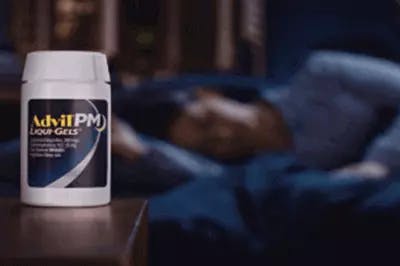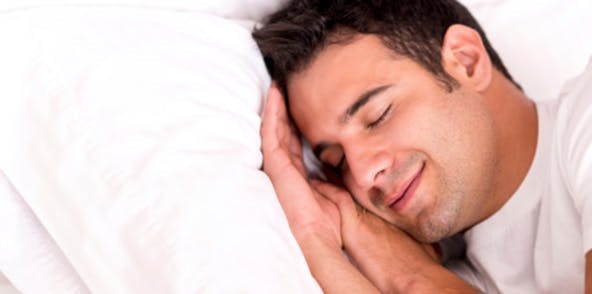How To Sleep Through The Night
Sometimes the problem isn't falling asleep, but waking up in the middle of the night and not being able to return to sleep. Lying awake at night unable to fall back asleep can be a deeply frustrating, anxiety-producing experience.
My first piece of advice for people who wake in the middle of the night might sound surprising:
Do nothing
Staying relaxed, and remaining in the semi-conscious state between wake and sleep, is the fastest way to return to full sleep. Of course, it isn't always that simple. Waking in the middle of the night, you may find yourself wide-eyed and all-too-alert before you know it. Under these circumstances it can be tempting to try to distract yourself with activity until you feel sleepy again—but these distractions can be more stimulating than relaxing.
If you find yourself awake deep into the night, here are some do's and don'ts to help you find your way back to slumber:
Don't look at the clock
A glance at the clock will start a round of mental mathematics, as you calculate how much time you have left before your alarm sounds. Clock watching in the middle of the night creates anxiety. Anxiety interferes with sleep, which in turn can make you feel more anxious.
"Anxiety interferes with sleep, which in turn can make you feel more anxious"
To return to sleep as quickly as possible, place your gentle, quiet focus on staying mentally and physically relaxed. You may be surprised at how quickly you slip back into sleep.
Don't turn on the lights
Getting up to go to the bathroom, flipping on the television, booting up a tablet or laptop—these activities do more than temporarily distract you from your not-sleeping woes. They also expose you to light. Darkness is critical for sleep. Even relatively brief exposure to light at night disrupts the circadian rhythms that drive sleep.
The sleep hormone melatonin is activated by darkness. Levels of melatonin rise in the body in response to the absence of light, reducing alertness and priming the body and mind for sleep. Light exposure at night suppresses the body's natural melatonin secretion. If you need to make visits to the bathroom at night, a night light in your bathroom can help you find your way without interfering with your body's sleep cycle.
Do find quiet distractions
Watching television or surfing the web in the middle of the night won't help sleep come more quickly. Distractions can be helpful to sleep—they just need to be the right kind. Counting exercises engage the mind—distracting from the problem of sleeplessness—without over-stimulation. Try counting back from 300 by 3s.
Do work with your partner to sleep well together
Couples, it's not just your sleep that matters, but your partner's as well. A restless, poorly sleeping partner can leave both bedmates without sufficient rest. Couples who reinforce one another's good sleep habits—including moderating use of caffeine and alcohol, sticking to regular sleep routines, and tending to sleep issues as they arise — can help each other avoid middle-of-the-night sleeplessness.
Consult your physician if you have regular problems with sleep.
Michael J. Breus, Ph. D., is a Clinical Psychologist with a specialty in sleep disorders. He is the author of The Sleep Doctor's Diet Plan: Lose Weight Through Better Sleep (Rodale Books; May 2011) and BEAUTY SLEEP: Look Younger, Lose Weight, and Feel Great Through Better Sleep.








